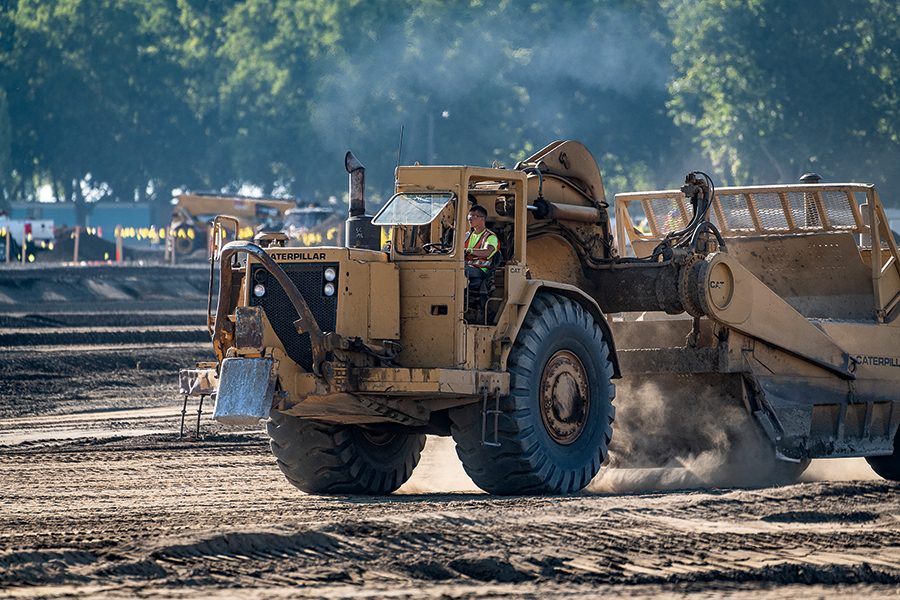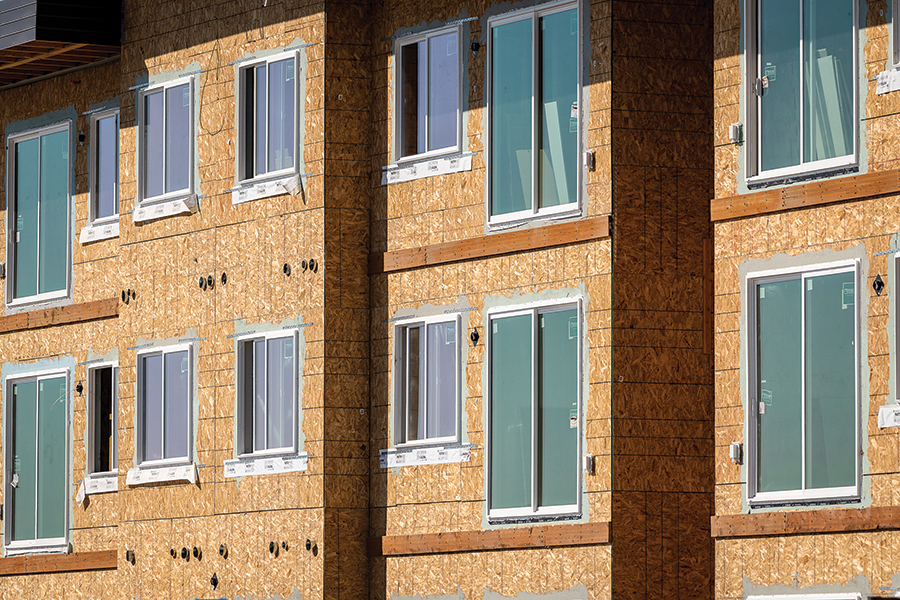
Home » City of Pasco: $150M in city projects on deck for next year
City of Pasco: $150M in city projects on deck for next year

October 14, 2021
Pasco will begin construction on a new home for the Tri-Cities Animal Control building by spring 2022.
So says David Zabell, Pasco city manager.
The animal control facility is by no means the largest or most complicated undertaking on the city’s $150 million capital projects list for the coming year. Water and wastewater plants hold that distinction, along with plans to ask voters to fund an aquatics center.
But the shelter is arguably the project Tri-City animal lovers hold dearest and have waited the longest to see come to fruition. The three cities have long worked to replace the aging facility near the Columbia River. Visions cropped up, then faded.
But this time, Zabell said, the i’s are dotted and t’s crossed. Designs are being finalized. The location is secure. Kennewick and Richland have signed off on their share of the $5 million bill – nearly $1.7 million apiece.
It will be under construction in the coming year, he said.
Plenty of projects
Pasco promises to be awash in construction in the coming year, both public and private.
Private firms confirmed an estimated $1 billion in new food processing plants and distribution warehouses during summer 2021, with construction beginning soon after.
The collective impact of new plants for Darigold Inc., Reser’s Fine Foods, Local Bounti and Amazon Inc. promise to add 3,000 or more jobs to the community and has made Pasco the envy of economic development leaders across the region. But the city itself has its own share of construction to manage.
Like the animal control building, the Lewis Street overpass took years to bring forward, but has begun at long last.
The $37 million project is the city’s top priority and is backed by local, state and federal money and even real estate excise taxes, the taxes all property sellers pay when sales record.
The bridge will carry Lewis Street over the railroad tracks and retire an old, narrow tunnel that runs underneath.
Lewis Street is part of a larger downtown update that includes a refresh for both Peanuts Park the Pasco Farmers Market, and a streetscape improvement campaign to widen sidewalks on Lewis Street between Second and Fifth avenues while adding benches, signs and more.
“That will open up a lot of opportunities in that corridor for the business owners,” he said.
Water, fire, traffic
Infrastructure – the unsexy work involved with bringing roads, utilities and other important services to people and businesses – will play a big role in the coming year.
In western Pasco, the city is tackling the Road 100-Interstate 182 interchange, which faces a surge in new traffic as Costco, retail developers and residential developers prepare to dig into the Broadmoor area, which is west of Road 100 and Broadmoor Boulevard.
The city will add a loop as well as widen the westbound ramp to add capacity. It is city-funded project because it addresses existing demand. That means it’s not appropriate to shift the cost to the newcomers.
Other updates include a turn signal at Broadmoor-Road 100 and Burns Road and getting a city-owned site on Road 100 south of the interchange ready for a future fire station.
To the east, the city is working with the state Department of Transportation on options to improve the Road 68 and I-182 interchange. It will build a large, two-lane roundabout at the Road 68-Court Street intersection, which clogs with commuter traffic in the morning.
“A turn signal would work there, but not as well as a roundabout,” Zabell said.

Sylvester Road, which runs the length of the city, will get a center turn lane to ease traffic congestion and cut down on left turn accidents.
Moving east, construction begins in 2022 on the A Street Sporting Complex, including soccer and sports fields. The total project cost, funded in part by a state grant, is expected to be $606,000.
Water and sewer projects will be some of the costliest undertakings of the coming year.
A $6.5 million water reservoir will bring 5 million gallons of capacity to the area near Road 68 and Burns Road.
The city’s wastewater treatment plant, which treats sewage before it’s discharged to the Columbia River, is set for a $20 million update. A later phase will add nearly $3 million more in expenses.
The Process Water Reuse Facility, which provides treated water to food processors, will get a $32 million update. The cost will be borne by the facility’s handful of users, not the city’s ratepayers.
The Butterfield Water Treatment Plant and the West Pasco Water Treatment Plant will receive $5 million and $1.5 million in updates, respectively.
Lest the figures seem large, it’s worth noting that Pasco is only going to get thirstier.
In 2020, it treated and supplied more than 5 billion gallons of drinking water and treated
1 billion gallons of wastewater. Both figures represent a 5% increase over the year prior, courtesy the city’s rising population, currently approaching 80,000 and expected to rise to 120,000 by 2038.
Pasco’s sleeper project
And speaking of things that are water-related, Pasco hasn’t abandoned its dreams of an aquatics center.
The Pasco Public Facilities District is expected to ask the city’s voters to approve raising the local sales tax on some but not all items by two-tenths of a percent.
If approved, sales tax revenue will support debt to build a $40 million aquatics center. In 2013, Pasco voters supported the aquatics center plan when it was presented to voters across the Tri-Cities, but “no” votes in Richland and Kennewick killed the dream.
The city and its facilities district are pursuing the project on their own. They anticipated a 2020 ballot issue, but the project was put on hold by the pandemic. If approved, the sales tax will add
2 cents to a $10 purchase, and the aquatics center will immediately become the city’s highest profile construction project.
Construction + Real Estate
KEYWORDS october 2021





